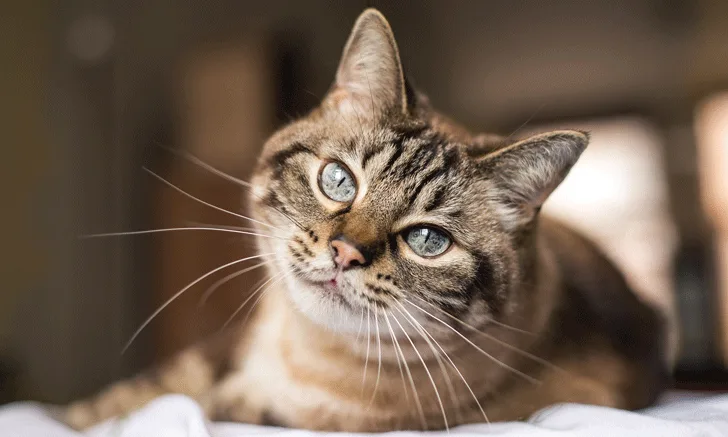Finding Hope for Relinquished Cats with Lower Urinary Tract Disease
Rakefet Orobona, DVM

Sponsored by Hill’s Pet Nutrition
Inappropriate urination is a common problem in cats and a common cause of relinquishment.1 Many of these patients may have some form of feline lower urinary tract disease (FLUTD), which includes diseases such as feline idiopathic cystitis, bacterial cystitis, and cystic calculi. Dolly was one such patient that was brought to the animal shelter and, through proper management, was able to be adopted despite her disease.
Dolly’s Case
Dolly, a 3-year-old spayed domestic shorthair cat (Figure 1), was presented to the Dumb Friends League as a stray. Within 24 hours of intake, Dolly was noted to have hematuria. She received a full physical examination, urinalysis, and radiography of her urinary bladder and kidneys. She was found to have a cystic urolith and was taken to surgery. Cystotomy was routine, and Dolly recovered uneventfully.
Urinalysis results were consistent with sterile cystitis, and stone analysis revealed a calcium oxalate stone. Dolly was switched to Hill’s Prescription Diet c/d Multicare Feline (Figure 2), which is specially formulated to support urinary health and reduce the risk for calculi.2 Dolly had no recurrence of clinical signs on her new food and was ultimately adopted.

Dolly was presented to the Dumb Friends League as a stray and revealed to have cystitis. She was fed Hill's Prescription Diet c/d Multicare Feline to manage her signs and make her adoptable.

Dolly eating Hill’s Prescription Diet c/d Multicare Feline
Managing FLUTD
Although cats with urinary disease—such as Dolly—typically have longer stays in the shelter, they are still considered adoptable in most cases.3 With counseling of future owners on proper management, the Dumb Friends League has found that many of these cats go on to live a happy, healthy life.
Potential owners should be educated about stress reduction and weight control, both of which are important components of FLUTD management.1,4 Any stressful change of routine, such as a new caretaker or reduced play time, has been shown to trigger a variety of sickness behaviors, including inappropriate urination.4 Adherence to routine and environmental enrichment (eg, proper hiding and perching locations) may help prevent recurrence of FLUTD.1,4
Focused dietary options such as Hill’s Prescription Diet c/d Multicare and Hill’s Prescription Diet c/d Multicare Feline Stress, coupled with behavioral counseling, can help make cats with FLUTD more adoptable or able to rejoin their family.
In addition, adopters should be counseled about dietary management, which has been shown to influence FLUTD recurrence.5 Along with mineral concentrations and maintenance of urinary pH, antioxidant levels and omega-3 fatty acids can influence urinary health.5 A prospective, randomized, double-blinded study showed that Hill’s Prescription Diet c/d Multicare Feline reduced the recurrence rate of feline idiopathic cystitis signs in client-owned cats by 89% over a 12-month period as compared with a control food.5
A therapeutic food can also help alleviate stress; dietary supplements L-tryptophan and hydrolyzed casein have both been shown to manage stress in cats.6,7 These supplements have been added to Hill’s Prescription Diet c/d Multicare Feline to create Hill’s Prescription Diet c/d Multicare Feline Stress, which provides Hill’s primary solution to help prevent FLUTD in cats in potentially stressful situations (eg, relinquishment to a shelter, conflict with other pets, rehoming, new baby, travel).8
Conclusion
Shelters often have to meet the challenge of treating and preventing FLUTD in relinquished and stray cats. This challenge can be exacerbated by the stress cats may experience from leaving their familiar surroundings to be housed in a shelter. Focused dietary options such as Hill’s Prescription Diet c/d Multicare and Hill’s Prescription Diet c/d Multicare Feline Stress, coupled with behavioral counseling, can help make these cats more adoptable or able to rejoin their family.
Learn more at HillsVet.com/Urinary
